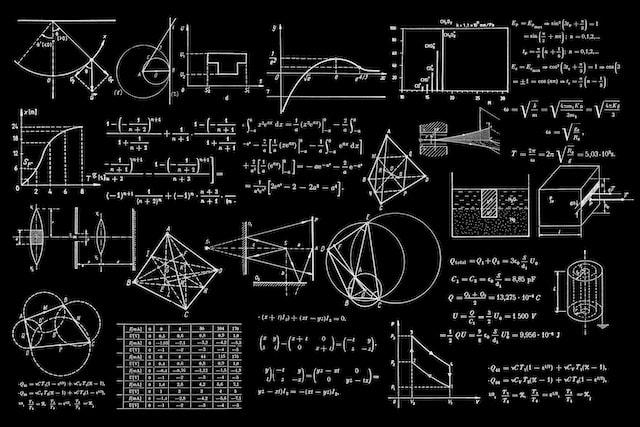What is Philosophy and Why Every Ph.D. Candidate Should Study It First
Curated from: scroogemarketer.com
Ideas, facts & insights covering these topics:
20 ideas
·31.5K reads
135
5
Explore the World's Best Ideas
Join today and uncover 100+ curated journeys from 50+ topics. Unlock access to our mobile app with extensive features.
Purpose of Philosophy
Philosophy can help you a lot in your research journey, but it's also easy to misunderstand and get lost in all the different schools of thought.
Philosophy is essential, not just for intellectuals in the ivory towers. It can help cure the human spirit's problems.
247
3.12K reads
What is Philosophy?
Philosophy is the love of wisdom. It is the study of fundamental questions about existence, knowledge, values, reason, and language. At its most basic level, philosophy is a way of thinking about the world, the universe, and society.
Philosophy is understood differently by different people.
251
2.39K reads
Philosophical Thinkers
People used to think that thunder and lightning were caused by Thor and that poems and myths were true stories. But after people began to think more rationally, they realized that natural causes were responsible for these things, not supernatural ones.
The ancient Greeks, like the Romans, wrote poetry and told myths. The myths were about gods and goddesses, like Zeus, Apollo, Athena, and Dionysus. The ancient Greeks wanted to find out why things changed in nature, instead of blaming it on the gods. These people were called "natural philosophers."
239
2.01K reads
Thinker 01: Parmenides
Parmenides thought that everything in existence was unchanging and that there was no literal transformation. He believed that only "one-ness" is real.
232
2.27K reads
Thinker 02: Heraclitus
Heraclitus argued against Parmenides' belief that everything is static. He said that everything is constantly changing and that we need both good and bad things to exist.
The world would not exist without the continual interplay of opposing forces.
243
1.96K reads
Thinker 03: Socrates
Socrates was a mysterious person who kept to himself and was known for his silence. He was one of the most important individuals in European philosophy.
Socrates believed that philosophers were people who realized that they know nothing and were disturbed by this. As a result, Socrates considered himself to be a philosopher.
Socrates was a famous philosopher who taught Plato. They both believed that philosophers should love wisdom and know that they know nothing.
He once said, “One thing only I know, and that is that I know nothing.”
254
1.75K reads
The death of Socrates changed Philosophy
Many historians think that Socrates was a type of philosophy, and not just a philosopher. They say that after he died, philosophy became more important to people and that people started to see it as more of a career.
229
1.67K reads
Thinker 04: Plato
Plato was 29 years old when his teacher Socrates died from drinking hemlock. He was taken aback when Athens sentenced its greatest intellectual to death. This event had a lasting impact on his later philosophical career.
According to Plato, the death of Socrates showed that there was a contradiction between the real world and the ideal one. As a philosopher, Plato's first action was to publish Socrates' entreaty for acquittal in the form of the Apology of Socrates.
Aside from the Apology, Plato is responsible for all of Socrates' and Plato's writings.
236
1.52K reads
Thinker 05: Aristotle
Plato's thoughts were not only linked to his teacher Socrates but even his student Aristotle.
Throughout the last two millennia, Plato's ideas have been repeatedly discussed and criticized by others. It was Aristotle who began this practice.
Aristotle admired Plato a great deal and said "Plato is dear to me, but dearer still is truth." Lastly, according to Aristotle, nature was a reflection of the real world.
Aristotle was a famous teacher who taught Alexander the Great. He wrote about different things, including physics, metaphysics, biology, poetry, music, politics, economics, and more.
236
1.44K reads
3 major branches of Philosophy:
Philosophical assumptions are:
- Epistemology
- Meta-physics
- Axiology
247
1.46K reads
01 Epistemology
- Episteme (knowledge) + Logy (science) = science of knowledge
- It is the argument - why this and not that.
Epistemology is the study of knowledge - how we come to know what is real, and what our limitations are.
247
1.47K reads
Epistemology || Sources of knowledge
a) Revealed knowledge: this is true because it is written in religious books. Even what we know from religious books is being studied using scientific knowledge.
b) Scientific knowledge: through a systematic study, the knowledge has been organized into general concepts. For example, many scientific theories are based on mathematics.
c) Intuitive knowledge: little or no specific knowledge informs subjective judgment or gut feelings.
d) Man-made knowledge: remember that when we are looking at how knowledge is created, we need to think about how it works in the real world.
239
1.28K reads
02 Meta-physics
- Meta (beyond) + Physics (nature) = beyond the nature
- Discussion about reality.
- What is the reality of this universe?
- What is the reality of human beings?
- What is the reality of everything that exists or does not exist?
- What is truth?
- What is beyond nature?
243
1.29K reads
Branches of meta-physics are:
a) Cosmogony: the study of the universe, space, time, and the origins and evolution of phenomena.
b) Cosmology: the study of the universe, space, and time.
c) Ontology: the philosophical study of existence and reality.
d) Teleology: the study of or reasoning based on final causes.
e) Eschatology: the study of or doctrine about the end of history or the last things. For instance, the judgment day.
243
1.28K reads
03 Axiology
- Axio (value) + Logy (science) = science of value
- What are values?
- What is good?
- What is bad?
- What is acceptable?
- What should be rejected?
Basically, discussion of values within a society.
239
1.27K reads
Branches of axiology are:
a) Ethics: are the things that people think are the right thing to do. They can change from place to place and from time to time.
b) Aesthetic: is all about personal opinions. What might look pretty to me might look ugly to you.
237
1.15K reads
What is Research Paradigm?
Greek word meaning 'pattern'
Whenever we think of doing research, we get a few thoughts such as:
- 'How do we plan to do this research?'
- 'What will be my approach to the investigation?'
- 'Will I do Qualitative or Quantitative or mixed?'
To come out of this situation, the researcher takes the help of the "Research Paradigm"
A research paradigm is a framework that is used to guide research. It includes the assumptions that researchers make about what is being studied, and how it can be studied.
Paradigms can be based on different philosophies, such as positivism or constructivism.
228
1.05K reads
Paradigm has its roots in Philosophy
Our beliefs, knowledge, and reality are termed paradigms by social scientists.
Example: Let's assume you are in a new country and exploring places. You want to go to a certain location. There are three or more routes to reach the destination
Now, it depends on the person to decide on a route based on his knowledge, belief, and reality.
The important thing is what is the person's view on each of the routes.
227
984 reads
Every Paradigm has its own Ontology, Epistemology, and Axiology
When all the 'ology' is of the same nature, they lead to a certain research methodology. For example, positivism or interpretivism.
- First ontology.
- Second, ontology will decide the epistemology.
- Third, epistemology will decide axiology.
- Fourth, all three will meet and decide the research methodology (quantitative or qualitative).
- Research Methodology will showcase the research design (experimental, cause-effect, survey, grounded theory, ethnography, etc)
- Lastly, Research Design will guide the research instrument.
237
986 reads
Constituents of Paradigm
Ontology
↓
Epistemology
↓
Axiology
↓
Methodology (Quantitative or Qualitative)
↓
Research Design
↓
Research Instrument
239
1.11K reads
IDEAS CURATED BY
CURATOR'S NOTE
Philosophy is a confusing subject. But it's important to understand the basics. The three main branches of philosophy are Epistemology (the study of knowledge), Meta-physics (the study of existence and reality), and Axiology (the study of values).
“
Weekly Concepts's ideas are part of this journey:
Learn more about philosophy with this collection
The history of fashion
The impact of fashion on society
The future of the fashion industry
Related collections
Similar ideas
3 ideas
What You Should Know About the Philosopher Plato
thoughtco.com
9 ideas
Why We All Need Philosophy
markmanson.net
10 ideas
Read & Learn
20x Faster
without
deepstash
with
deepstash
with
deepstash
Personalized microlearning
—
100+ Learning Journeys
—
Access to 200,000+ ideas
—
Access to the mobile app
—
Unlimited idea saving
—
—
Unlimited history
—
—
Unlimited listening to ideas
—
—
Downloading & offline access
—
—
Supercharge your mind with one idea per day
Enter your email and spend 1 minute every day to learn something new.
I agree to receive email updates















